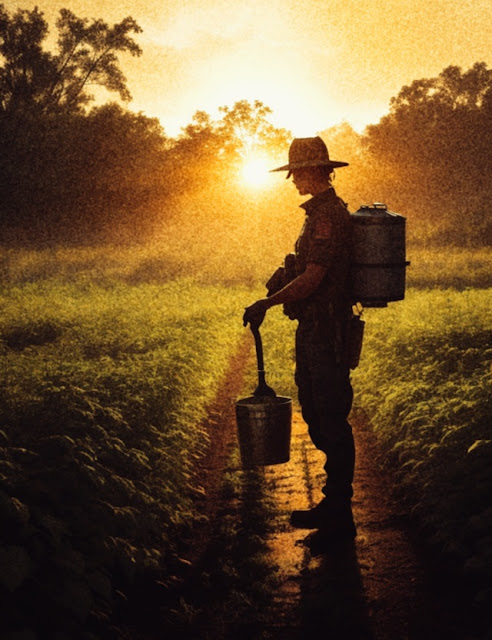Ah, the life of a lone prepper! You've mastered the art of storing enough canned goods to outlast a zombie apocalypse, and your bug-out bag is so well-packed that even James Bond would be envious. But as you've delved deeper into the world of prepping, you may have wondered about the legal and ethical implications of your survivalist endeavors. Fear not, my fellow prepper! In this blog, we're going to unravel the mysteries of navigating legal and ethical issues as a lone prepper, all with a dash of humor and a confident tone.
Legal Gray Areas:
Let's dive right in by addressing the legal concerns that lone preppers often find themselves pondering.
1. Firearm Ownership:
So, you've got an arsenal of weapons to protect your fortress. While the Second Amendment may grant you the right to bear arms in the U.S., it's essential to know your local, state, and federal gun laws. Remember, being a lone prepper doesn't make you a one-person militia.
2. Property Rights:
Let's say you've identified the perfect bug-out location, but it's technically someone else's land. While it may seem tempting to set up camp, trespassing is a no-no, even in a post-apocalyptic world. Explore landowner agreements and always aim for cooperation over confrontation.
3. Hunting and Fishing:
You've got your camo gear and a trusty bow and arrow. But wait, do you have the proper permits for hunting and fishing in your area? Poaching isn't just unethical; it's illegal. It's survival, not The Hunger Games!
Ethical Considerations:
Now, let's shift gears and discuss the ethical side of lone prepping. After all, being a prepper isn't just about stockpiling supplies; it's about maintaining your humanity.
1. Community Building:
While you might be the lone wolf in your prepping journey, fostering a sense of community is vital. It's not just about sharing resources during an emergency; it's about human connection. Plus, who else will you share your survival stories with?
2. Emergency Aid:
When the world crumbles around you, remember the golden rule: treat others how you'd like to be treated. Offering assistance to those in need isn't just ethical; it's a way to build trust and alliances. Besides, you don't want to be known as the prepper who hoarded all the hand sanitizer.
3. Environmental Responsibility:
Prepping often involves stockpiling resources, but it shouldn't mean trashing the planet. Ethical preppers consider their environmental footprint. Practice sustainable foraging, minimize waste, and leave no trace – it's your survival legacy.
Legalities vs. Morality:
Now, let's talk about the delicate dance between legalities and morality that every lone prepper faces.
1. Looting vs. Salvaging:
Picture this: you stumble upon an abandoned supermarket filled with non-perishable goods. Is it looting or salvaging? Legally, it's probably the former, but ethically, it's a gray area. Take what you need, but don't turn into a grocery store bandit.
2. Resource Sharing:
In dire times, sharing resources with others is ethical but might not align with strict legal codes. This is where your judgment comes into play. Remember, legality doesn't always equate to morality.
Conclusion:
In the world of lone prepping, navigating legal and ethical issues is like trying to start a fire with wet wood – it's a challenge, but it can be done. Understanding the laws in your area, maintaining your moral compass, and finding that elusive balance between legality and ethics are all part of the prepper's journey.
So, my fellow preppers, go forth with confidence! Arm yourself not only with survival gear but also with knowledge and a strong ethical foundation. Remember, it's not just about surviving; it's about preserving our humanity in the face of adversity. And who knows, maybe one day we'll all look back and chuckle at how we once worried about such things while sipping homemade dandelion tea in our underground bunkers.
Stay prepared, stay ethical, and keep that quirky prepper spirit alive!






